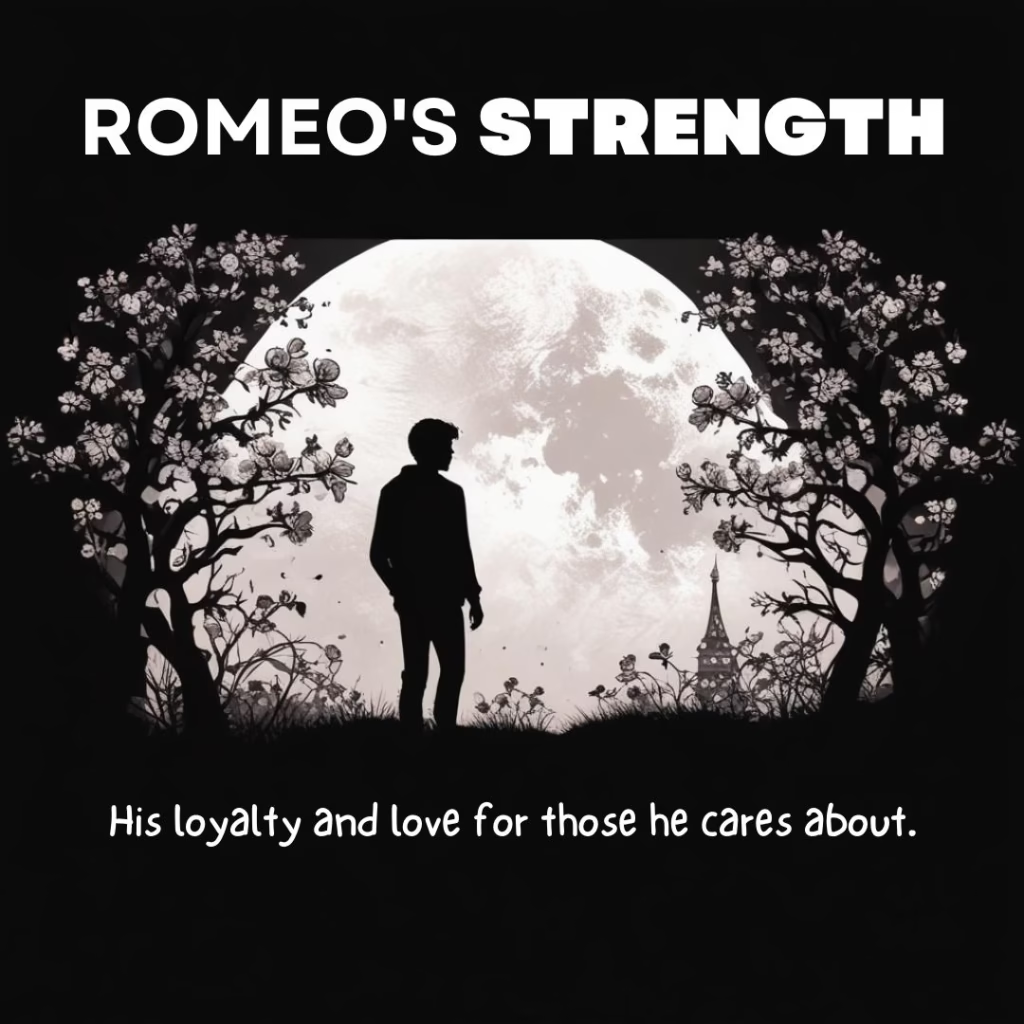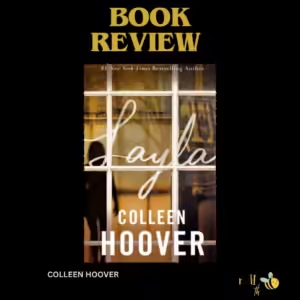Romeo Montague, the protagonist of Shakespeare’s iconic tragedy Romeo and Juliet, is renowned for his passionate emotions and unwavering devotion. But what is Romeo’s biggest strength? By exploring his strengths, we gain insight into what makes him one of literature’s most unforgettable characters. His capacity for deep love and his willingness to pursue it against all odds showcase not just his fervor but also a vulnerability that resonates with audiences. This blend of passion and idealism highlights the complexities of his character, allowing us to appreciate the depths of his commitment and the tragic consequences that arise from it. Understanding these facets of Romeo enriches our appreciation of the play and its exploration of love, fate, and the human experience, prompting us to contemplate what is Romeo’s biggest strength in the face of overwhelming challenges.
Background of Romeo
Romeo Montague is a young man from the feuding Montague family, whose intense and passionate love for Juliet, the daughter of the rival Capulet family, forms the emotional heart of Shakespeare’s Romeo and Juliet. His relationships—with Juliet, his friends, and his family—play a crucial role in shaping the narrative’s tragic trajectory. As we explore his character, we might ask, what is Romeo’s biggest strength? Romeo’s character is marked by a blend of admirable traits and significant flaws, which ultimately propel the unfolding drama towards its heartbreaking conclusion.
Background Information of Romeo Montague
- Family: Romeo is the sole son of Lord and Lady Montague, firmly entrenched in the longstanding feud with the Capulet family. This familial conflict sets the stage for the challenges he faces throughout the play.
- Love: At the beginning of the story, Romeo is infatuated with Rosaline, but his heart transforms when he encounters Juliet at a Capulet party. Their instant connection leads him to sneak to her balcony under the cover of night, where he boldly professes his love.
- Marriage: In a bid to unite their families through love, Romeo and Juliet secretly marry with the help of Friar Laurence, hoping to overcome the animosity between their families.
- Banishment: Tragedy strikes when Romeo is banished from Verona after a duel with Tybalt, Juliet’s cousin. This event marks a turning point, as it separates the young lovers and sets off a chain of disastrous consequences.
- Death: Believing Juliet to be dead, Romeo takes his own life in despair. Upon awakening and finding Romeo lifeless beside her, Juliet chooses to end her own life as well, sealing their tragic fate.
- Origins: The character of Romeo finds parallels in earlier literary figures, notably Pyramus in Ovid’s “Metamorphoses.” The modern interpretation of Romeo is thought to have been influenced by Mariotto from Masuccio Salernitano’s “Il Novellino” (1476), which also explores themes of forbidden love and tragic outcomes.
Analysis of Romeo’s Strengths
Passionate Love
Romeo’s capacity for deep and profound love stands out as one of his most significant strengths. As we consider what is Romeo’s biggest strength, it becomes clear that his affection for Juliet transcends mere romantic attraction; it serves as a transformative force that alters not only his life but also the lives of those around him.
Examples
From the iconic balcony scene, where he professes his love under the cover of night, to their secret marriage that defies the longstanding feud between their families, Romeo’s passionate love creates some of the play’s most memorable and poignant moments. Each encounter between the two lovers is imbued with intensity and urgency, showcasing how their feelings push them to defy societal norms and expectations.
Impact
The impact of Romeo’s love is profound; it inspires him to act with courage and commitment, demonstrating the qualities of a true romantic hero. His willingness to risk everything for Juliet reflects an idealistic belief in love’s power to transcend obstacles and challenges. This unwavering devotion not only highlights his character’s depth but also serves as a catalyst for the unfolding tragedy, making Romeo a timeless figure who embodies the complexities of love and its consequences. Through his passionate love, readers and audiences are invited to explore the transformative power of love and the sacrifices it often demands.
Idealism
Romeo Montague embodies the spirit of an idealist, fervently believing in the concepts of true love and destiny. As we explore what is Romeo’s biggest strength, we see that his romantic vision sharply contrasts with the cynicism and practicality exhibited by many of the other characters in Romeo and Juliet, who often view love through a more pragmatic lens. This idealism shapes not only his behavior but also the narrative of the entire play.
Examples
One of the most telling expressions of Romeo’s idealism is his belief in “star-crossed love.” He perceives his connection with Juliet as fated, suggesting that their love is written in the stars and destined to overcome any obstacles. His poetic declarations, filled with vivid imagery and heartfelt emotion, further underscore this idealistic nature. For instance, his eloquent speeches about love, beauty, and the heavenly qualities of Juliet elevate their relationship to a celestial plane, emphasizing his view that love is a divine force.
Impact
Motivational Force
Romeo’s idealism serves as a powerful motivational force that drives his actions throughout the play. His unwavering belief in the transformative power of love inspires him to take bold steps, such as pursuing Juliet passionately and marrying her in secret. This commitment to love propels him into a world of intense emotions and dramatic encounters, showcasing the beauty and fervor of youthful romance.
Blinded by Reality
However, this same idealism also blinds Romeo to the harsh realities that surround him. His conviction that their love is fated prevents him from fully grasping the dangers posed by the longstanding feud between the Montagues and Capulets. As he acts on impulse, such as confronting Tybalt, he fails to consider the potential consequences of his actions, leading to tragic outcomes.
Isolation from Others
Romeo’s romantic vision creates a rift between him and other characters, particularly those who adopt a more cynical or pragmatic view of love. Figures like Mercutio express skepticism about the sincerity and longevity of romantic relationships, highlighting the contrast between their attitudes and Romeo’s idealism. This isolation further complicates his situation, as he seeks understanding and support from those who may not share his beliefs.
The Tension of Youthful Idealism
Ultimately, Romeo’s idealism encapsulates the tension between youthful dreams and the often harsh truths of reality. While it enriches the narrative with themes of passion and destiny, it also serves as a cautionary tale about the potential pitfalls of viewing love through an overly romantic lens. This duality invites audiences to reflect on the complexities of love and the ways in which our beliefs can shape our actions and the course of our lives.
Courage and Bravery
Romeo Montague exemplifies immense courage and bravery, as he consistently demonstrates a willingness to confront danger in the name of love. In considering what is Romeo’s biggest strength, this fearless disposition not only defines his character but also highlights the lengths to which he will go to protect and pursue his beloved, Juliet.
Examples of Bravery
One of the most striking displays of Romeo’s courage occurs when he confronts Tybalt following the death of his friend Mercutio. In this emotionally charged moment, Romeo is consumed by a fierce desire for vengeance, fueled by grief and anger. Despite knowing the risks involved in facing Tybalt, he steps forward to defend the honor of his fallen friend. This act of confrontation not only showcases his bravery but also illustrates the passion that drives him—his love for both Mercutio and Juliet compels him to act decisively, even at great personal risk.
Another example of Romeo’s bravery is his clandestine journey to visit Juliet in her family’s home. Knowing that he is entering enemy territory, he risks his life to be with her, demonstrating his unwavering commitment to their love. This secret meeting at the Capulet estate shows the lengths he’ll go to maintain their connection. His willingness to take such risks speaks volumes about his character and the depth of his feelings for Juliet.
Impact of His Courage
Deep Commitment to Love
Romeo’s courage reveals a profound commitment to love, showcasing that he values his relationships above all else. His willingness to confront danger underscores the intensity of his feelings for Juliet and his friends. This deep-seated devotion compels him to take risks that others might avoid, illustrating how love can inspire individuals to act heroically, even in perilous situations.
A Catalyst for Major Events
Romeo’s bravery serves as a catalyst for many pivotal moments in Romeo and Juliet. His confrontations, particularly with Tybalt, escalate tensions between the Montagues and Capulets, ultimately leading to tragic consequences. This courageous spirit propels the narrative forward, heightening the emotional stakes and drawing the audience deeper into the unfolding drama. Each act of bravery contributes to the play’s tragic trajectory, making Romeo’s character integral to the story’s progression.
Tragic Heroism
The combination of courage and impulsiveness elevates Romeo to the status of a tragic hero. While his bravery garners admiration, it also leads to impulsive decisions that result in devastating outcomes. This complexity invites audiences to sympathize with him, recognizing the dual nature of his character—noble yet flawed. Romeo embodies the idea that even the most courageous individuals can fall victim to their passions, making his journey both inspiring and heartbreaking.
Reflection on Sacrifice
Ultimately, Romeo’s courageous actions prompt reflection on the nature of sacrifice in the name of love. His willingness to face danger and confront life-threatening situations raises essential questions about the costs associated with deep emotional connections. Shakespeare prompts us to consider how far we’d go for love and the consequences of such sacrifices. His bravery, while admirable, serves as a reminder of the fragility of life and the complexities inherent in love and loyalty.
Loyalty
Romeo Montague exemplifies unwavering loyalty, not only to Juliet but also to his friends and family. In exploring what is Romeo’s biggest strength, this steadfast quality emerges as a defining characteristic of his personality and plays a crucial role in the unfolding of the narrative.
Examples of Loyalty
Romeo’s loyalty is most prominently displayed in his response to Mercutio’s death. Overcome with grief and anger, he seeks vengeance against Tybalt, demonstrating his deep commitment to friendship and honor. This act of retribution is not merely a quest for vengeance; it reflects the strong bonds he shares with those he loves. By avenging Mercutio, Romeo honors their friendship, showcasing a profound sense of loyalty that drives his actions.
Additionally, Romeo’s devotion to Juliet remains unwavering throughout the play. Even in the face of overwhelming obstacles, including the animosity between their families, he prioritizes their love above all else. His decision to marry Juliet in secret and his willingness to risk his life to be with her illustrate the depths of his commitment. His loyalty endures to the tragic end, choosing death by her side over living without her love.
Impact of Romeo’s Loyalty
Strong Sense of Honor
Romeo’s loyalty highlights his strong sense of honor, which is a central theme throughout Romeo and Juliet. His dedication to Juliet and his friends reflects the values of fidelity and commitment that resonate deeply with audiences. This loyalty makes him a romantic hero, embodying love, honor, and sacrifice celebrated in literature. His actions demonstrate that loyalty is not just a personal virtue but a powerful motivator that influences his decisions and actions.
Emotional Bonds
The impact of Romeo’s loyalty is also evident in the deep emotional bonds he forms with those around him. His relationships are characterized by a profound intensity, showcasing how loyalty can foster strong connections. This emotional depth enhances the narrative, making Romeo’s struggles and sacrifices all the more poignant. His interactions with Juliet, Mercutio, and even his family reveal the significance of these bonds, emphasizing that loyalty can be both a source of strength and a catalyst for tragedy.
Tragic Consequences
However, Romeo’s loyalty can also lead to tragic consequences. While it drives him to take noble actions, such as avenging Mercutio’s death, it ultimately places him in perilous situations. His dedication to his friend triggers events that lead to devastating outcomes, including their deaths. This tragic irony serves to illustrate the complexities of loyalty, showing how it can inspire both greatness and downfall.
Reflection on Loyalty
In essence, Romeo’s loyalty enriches the narrative of Romeo and Juliet, prompting audiences to reflect on the nature of loyalty in their own lives. It encourages a deeper exploration of how love, friendship, and honor intertwine to influence our choices. Romeo’s journey prompts us to reflect on the sacrifices for love and the balance between devotion and reality.
The Consequences of Romeo’s Strengths
Romeo’s strengths, while admirable and compelling, ultimately contribute to his tragic downfall. In asking what is Romeo’s biggest strength, we see that his passionate love and unwavering idealism inspire him to pursue his desires with fervor; yet, they also lead him to make impulsive decisions that have dire consequences.
Impulsive Decisions
For instance, Romeo’s intense love for Juliet prompts him to marry her in secret, a decision that, though romantic, disregards the complexities of their families’ feud. This hasty act triggers events that spiral out of control, showing how passion clouds his judgment. His idealism further fuels this impulsivity; he believes that love can conquer all obstacles, which leads him to take risks that ultimately jeopardize not only his own life but also Juliet’s.
In his final act, Romeo’s impulsiveness reaches its tragic peak. In a moment of despair upon believing Juliet to be dead, he chooses to take his own life rather than live without her. This choice, rooted in love and loyalty, highlights his tragic flaw: failing to foresee the consequences.
The Duality of His Character
This duality in Romeo’s character—his strengths intertwined with his flaws—makes him profoundly human and relatable. In asking what is Romeo’s biggest strength, audiences empathize with his passionate pursuit of love. We all grapple with the tension between our desires and the realities of our circumstances, making Romeo’s journey resonate on a personal level.
Ultimately, Romeo’s strengths, though noble, reveal the complexities of love and the potential for tragedy when passion overshadows reason. His story reminds us of the balance between strength and vulnerability in our choices for love. Through Romeo, Shakespeare captures the essence of what it means to be human, with all its contradictions and emotional depth.
Conclusion
In conclusion, Romeo Montague stands out as a compelling character in Shakespeare’s Romeo and Juliet, defined by his passionate love, idealism, bravery, and unwavering loyalty. While these strengths make him admirable, they also lead to his tragic downfall. His devotion to Juliet leads to impulsive choices, including their secret marriage and his tragic death. This duality—where strengths yield both beauty and tragedy—underscores the complexities of love and the human experience, prompting us to ask, what is Romeo’s biggest strength? Ultimately, his journey invites us to reflect on the balance between passion and reason, loyalty and consequence. Through Romeo, Shakespeare captures the essence of humanity, reminding us of the intricate interplay between love, ideals, and the harsh realities we face.
FAQs
- What is Romeo’s biggest strength?
His biggest strength is his passionate love for Juliet, which drives his actions throughout the play. - How does Romeo’s idealism affect the story?
Romeo’s idealism motivates his belief in love but also leads to impulsive decisions. - Why is Romeo considered brave?
He risks his life to be with Juliet and confronts challenges like duels and family conflict. - Is Romeo loyal to his friends?
Yes, his loyalty is evident when he avenges Mercutio’s death despite the risks. - How does Romeo’s love for Juliet define his character?
It reveals his depth of emotion, courage, and willingness to defy social norms. - What are the consequences of Romeo’s strengths?
While admirable, his strengths also lead to impulsive actions and tragic outcomes. - How does Romeo’s bravery appear in the play?
His bravery is seen in his duel with Tybalt and his secret visits to Juliet. - Does Romeo’s loyalty impact the play’s ending?
Yes, his unwavering loyalty to Juliet leads to the tragic conclusion. - Why is Romeo’s passionate love important?
It drives the entire plot, showcasing the power and complexity of love. - How does Shakespeare use Romeo’s strengths to develop the story?
Romeo’s strengths create dramatic tension and highlight the theme of love’s intensity.
If you like reading this, you may also like
Thanks for reading, for more interesting articles, visit our homepage.





